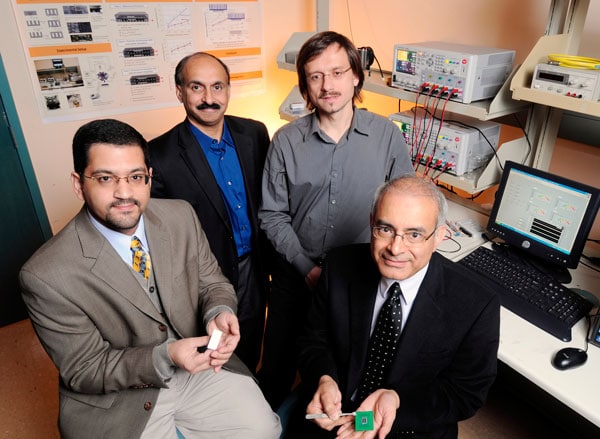
Researchers from the Georgia Institute of Technology in Atlanta, Ga. have been awarded a $2.9 million Defense Advanced Research Projects Agency (DARPA) contract to develop three-dimensional chip-cooling technology capable of dissipating up to 10 times the amount of heat currently removed by cooling systems used today. The new technology will also need to successfully manage on-chip hot-spots that dissipate more power per unit area than the remainder of the device.
If successful, the new cooling technology could be used in conjunction with future high-performance integrated circuits embedded in military equipment.
“There is really no good way to address this heat dissipation need with existing technology, and the problem is getting worse because computing power is increasing and the capabilities being put on chips are expanding,” Yogendra Joshi, a professor in the institute’s Woodruff School of Mechanical Engineering, said. “There is a real need for developing schemes that can address high power on the whole chip coupled with very high power dissipation areas that are only a few millimeters square.”
Joshi added that the chips’ installation in systems intended for field use in harsh or demanding environments will increase the challenge of developing adequate cooling technology.
Muhannad Bakir, an associate professor at the Georgia Tech School of Electrical and Computer Engineering and another member of the research team, sees the new technology as a possible step forward for enhancing cooling performance and energy efficiency in all future electronics.
“It is well known that cooling constraints play a critical role in designing electronic systems,” he said. “Often a favorable electronic system configuration may not be realizable due to lack of adequate cooling. The novel microscale thermal technologies that will result from this project will address the most demanding thermal needs of future heterogeneous 3-D nanoelectronic systems and will enable new levels of performance and energy efficiency.”
For more information, visit the Georgia Institute of Technology.






